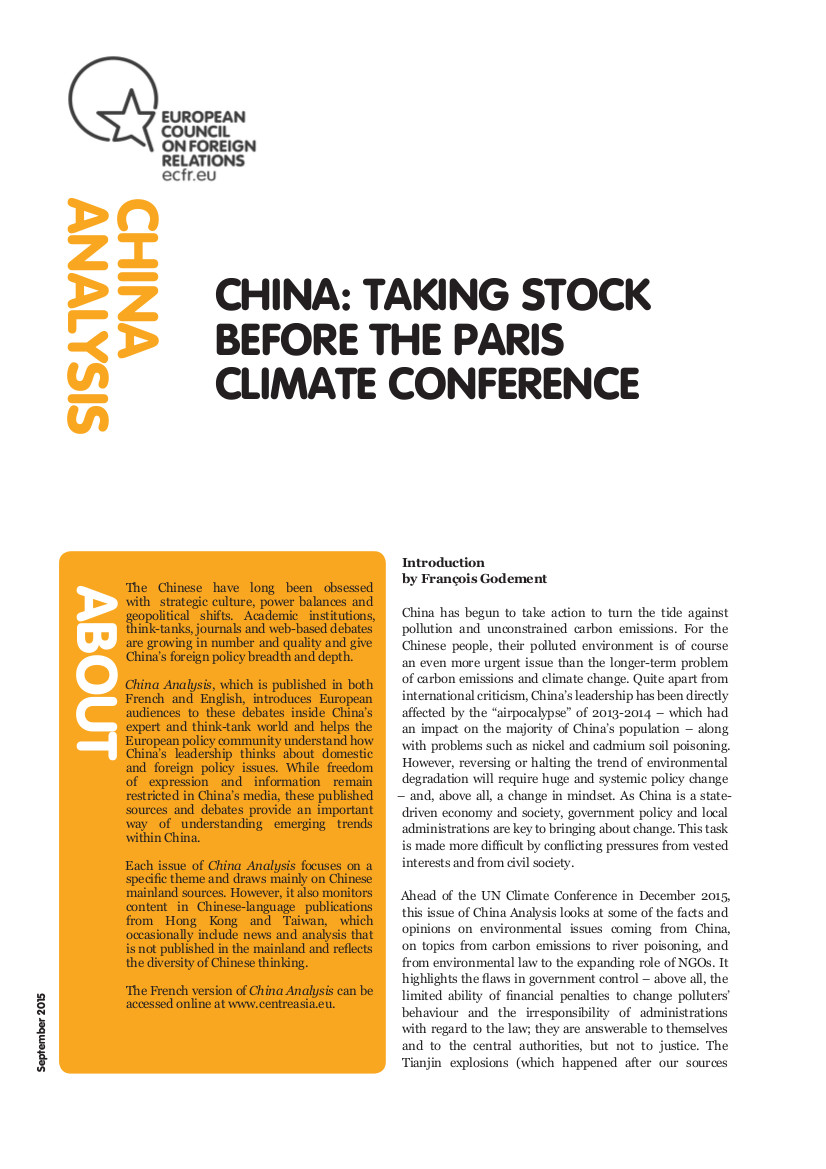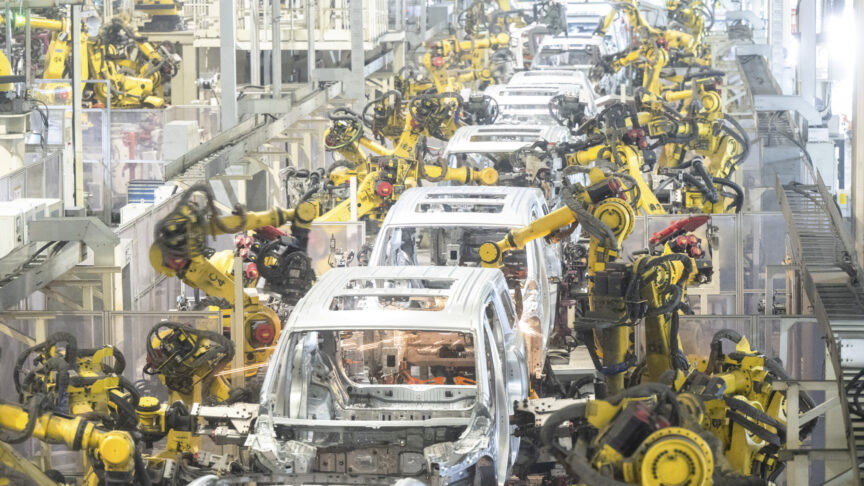China: Taking stock before the Paris climate conference
Cause for optimism on China ahead of Paris climate conference
Growing international consensus and increasing domestic pressure on the environment in China offer hope ahead of this year’s crucial climate summit in Paris, according to a new report from ECFR.
“China: Taking stock before the Paris climate conference”, is the latest edition of China Analysis, which examines Chinese-language sources to understand the Chinese view on current affairs. This report highlights Chinese commentators who laud the November 2014 climate deal between the U.S. and China (who together account for 40 percent of the world’s CO2 emissions) as an event “with historical meaning” and one that encourages “irresistible progress towards an ecological civilisation.” Other sources highlight the deal as potentially strengthening future US-China interactions in “a new type of great power relations”.
But concern for improved action on climate change and the environment is not limited to the international arena, with increasing Chinese domestic pressure to redress Chinese environmental issues. China’s economy loses $32 billion every year because of environmental degradation, and environmental disasters have caused the deaths of more than 2,000 people every year in the last decade. The report highlights the growing government action to tackle these concerns, with a raft of policy initiatives coming forward in recent months.
But the report also highlights some of the limitations to this newfound official enthusiasm. Chinese commentators point to the flaws in systems of government control – above all the limitations of financial sanctions as well as the irresponsibility of local administrations, which are often led by other motivations than justice or environmental preservation.
François Godement, head of ECFR’s Asia & China programme, said:
“China has begun to take action to turn the tide against pollution and unconstrained carbon emissions. For the Chinese people, their polluted environment is of course an even more urgent issue than the longer-term problem of carbon emissions and climate change.
“However, reversing or halting the trend of environmental degradation will require huge and systemic policy change – and, above all, a change in mindset. As China is a state-driven economy and society, government policy and local administrations are key to bringing about change.
“In the end, it comes back to China’s willingness and ability to implement “red lines” on environmental protection that cannot be breached. This process involves one of the thorniest issues in the Chinese political system: accountability.
“Unless the problem becomes a very high priority, China’s government, even if it is uniquely endowed with the power to set objectives, does not have the local and regulatory mechanisms in place to ensure long-term implementation.”
The European Council on Foreign Relations does not take collective positions. ECFR publications only represent the views of their individual authors.



